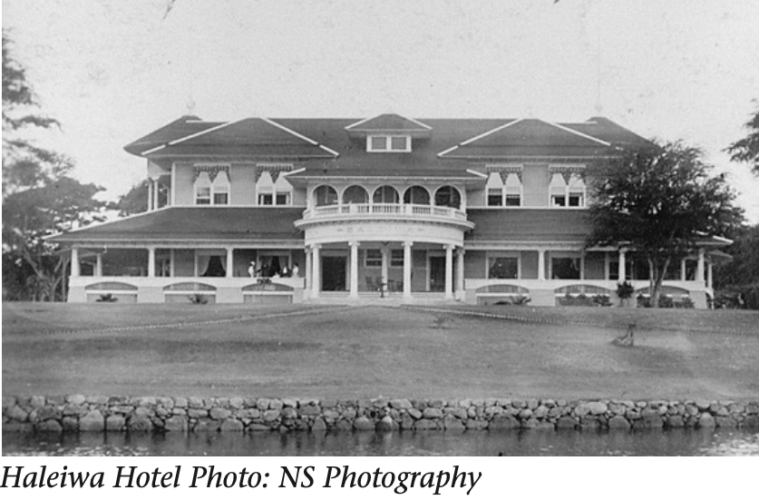By Captain Rick Rogers
Over one hundred years ago, Thanksgiving was a very special holiday. The wires were alive with the news that the Great War in Europe was over. Most of the 10,000 men and women from the Hawaii Territory who served in the Great War had yet to return to the islands. More than 100 would not.
The first of the post-war tourists were arriving via the luxurious steam vessels. The well-heeled travelers might spend a day or two at the Royal Hawaiian or the Moana Hotels in Waikiki, before boarding the Oahu Railroad and Land Company’s train for an excursion to the North Shore. The better passenger cars were towards the front of the train. Whistle stops may be made at the Aiea and Ewa Mills, Nanakuli and again at the Waianae Station.
Kaena Point was rounded as the train turned into the wind. Wires had been strung adjacent to the tracks, so if the train was stopped for some unforeseen reason the engineer could toss a phone wire over the land line and communicate with operators around the island. The primary destination for the more affluent passengers was the Haleiwa Hotel, which opened in 1898, just a year before the line was completed all the way to Kahuku Plantation.
Standing in front of the Haleiwa Hotel, visitors were struck by the symmetry of the edifice. Large lawns sloped to the water’s very edge. No better view of the splashing surf could be imagined. Inside, one found the finest hardwood floors. Beautiful paintings graced the walls. The service-ware, even the gardeners’ tools were the very finest quality to be found west of the Mississippi.
The first floor was devoted to the office, parlor, dining room, and kitchen. The dining room occupied the east end of the building. A broad stairway led to the second floor, which was devoted to the sleeping compartments. The front rooms overlooking the ocean were single, while the end and mauka rooms were en suite, with a bath, and a telephone available for “central connection”. The entire building and four of the cot- tages were equipped with electric lighting supplied by the hotel’s own power plant. Water was supplied from a natural spring.
After being shown about the premises the guests were seated before a sumptuous Thanksgiving repast, complete with all the traditional trimmings and the finest delicacies which had been shipped from San Francisco. After dinner, the men retired to one of the western cot- tages, which had been outfitted as a billiard room. They smoked Cuban cigars and discussed other amenities. There was a stable set up across the road for those who wished to explore the Waialua Sugar Plantation. Canoes and rowboats were available for hire along the stream. The sportsman could book a space at the “Men’s Lodge”, a thatched roof log cabin located five miles inland at Puukapu, where shooting sports were popular.
There was much to be thankful for in 1918, now that the Great War was over.



